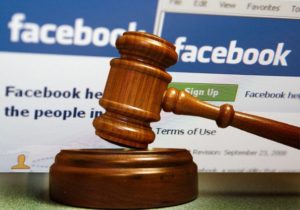SOCIAL MEDIA AND SURVEILLANCE IN PERSONAL INJURY CLAIMS
as at 13 May 2021
Facebook has been described as the “modern day diary”; you would be hard-pressed to not know at least one person who is currently active on Facebook, or using some form of social media.
The unfortunate reality for many insured persons is that intrusive investigations and surveillance are routinely employed by insurers to minimize damages. Social media and online surveillance is having a far greater impact on cases than people think.
Social media and its impacts:
The Queensland Supreme Court has handed down a decision for a workers’ compensation matter where the overall award was reduced due to surveillance footage and Facebook evidence that was tendered by the Defendants.
In Melanie Digby v The Compass Institute Inc & State of Queensland [2015] QSC 308, Ms Digby, a disability carer, sustained injuries to her right arm and shoulder at work. Ms Digby had attempted to catch a disabled patient from falling when he was startled by a police car siren during a police presentation at her place of work.
Ms Digby claimed that she had developed an uncontrollable tremor in her right arm, experienced severe pain and had suffered from significant restrictions in the use of her right arm altogether. Throughout the trial period (and particularly whilst under cross-examination), Ms Digby’s right arm was “constantly shaking vigorously” and “appeared to be quite uncontrollable”.
Furthermore, Ms Digby presented medical evidence to indicate that she had sustained a significant psychiatric injury, stemming from the physical injuries she had sustained. It was claimed that Ms Digby was ‘socially isolated’ and “she did not pursue any social activities due to the effects of her injury”.
During the trial, the Defendant’s Solicitors led two main forms of evidence to discredit Ms Digby’s claim: surveillance footage of Ms Digby in her day-to-day life (particularly driving), and Facebook posts that Ms Digby had placed online.
The surveillance footage showed:
Ms Digby driving. This demonstrated that she was able to:
travel alone and in company;
travel outside in the general public without experiencing social anxiety;
physically drive and make use of her right hand on the steering wheel (she was shown maneuvering the car with her right hand on the steering wheel whilst her left hand changed the gears).
Ms Digby smoking a cigarette in her right hand (in the absence of a tremor); and
Opening and closing the car door with her right hand (in the absence of a tremor).
The Defendant’s legal representatives also “friended” Ms Digby to investigate her Facebook account. These Facebook investigations revealed:
Ms Digby had over 200 friends with whom she would converse with for hours at a time, several times a week (these conversation chains were available to peruse);
There had been significant life events in Ms Digby’s life which provided alternate reasons for her psychiatric injury. Ms Digby had not disclosed these issues to her treating psychiatrists; and
Photographs of Ms Digby camping and socializing subsequent to her injury with her children and friends.
It was accepted by Her Honour that Ms Digby sustained an injury. However, after considering the surveillance footage and the Facebook evidence, Atkinson J considered that Ms Dibgy had exaggerated her injuries for financial gain, and that her damages should be reduced accordingly:
[211] I have formed the view that Ms Digby deliberately exaggerated her somatic symptoms probably for the financial gain which she hoped to obtain from the litigation. The contrast between her behavior in the surveillance video and when asked by her own counsel to mark an exhibit, and her reported and observed symptoms when she saw medical practitioners and otherwise in court, is so stark that no other explanation appears reasonable.
Social media and surveillance had a huge impact on the way that damages were assessed in this case. In a personal injury claim, it is very important for anyone claiming compensation that they are aware that they may be, at some stage of their claim, under some form of surveillance. Facebook and social media accounts become a very cheap and effective method of surveillance for Insurers; whether it be directly through the Claimant, or through the Claimant’s family and friends.
It is important that you remain honest and truthful in your dealings with your medical specialists and treating practitioners, and you remain aware of your online presence.
